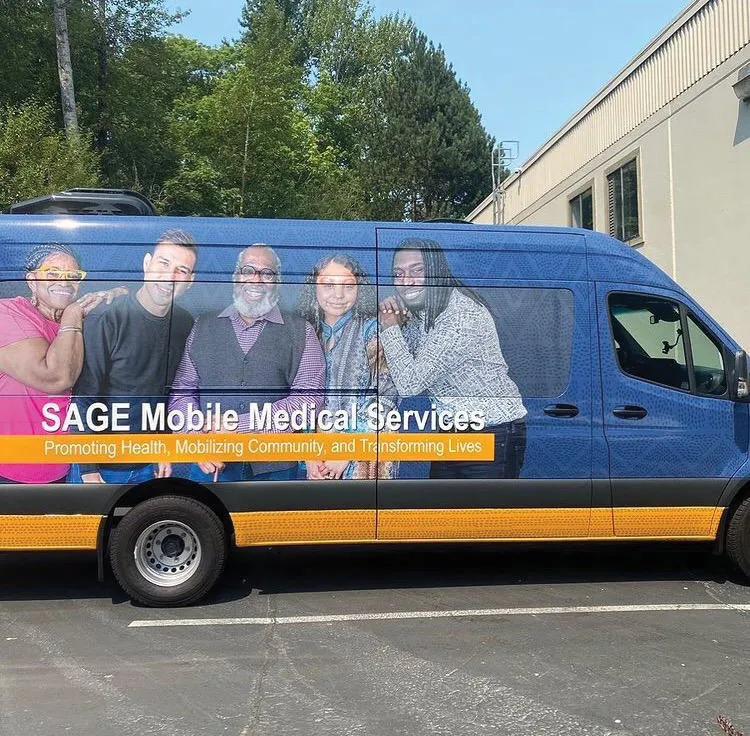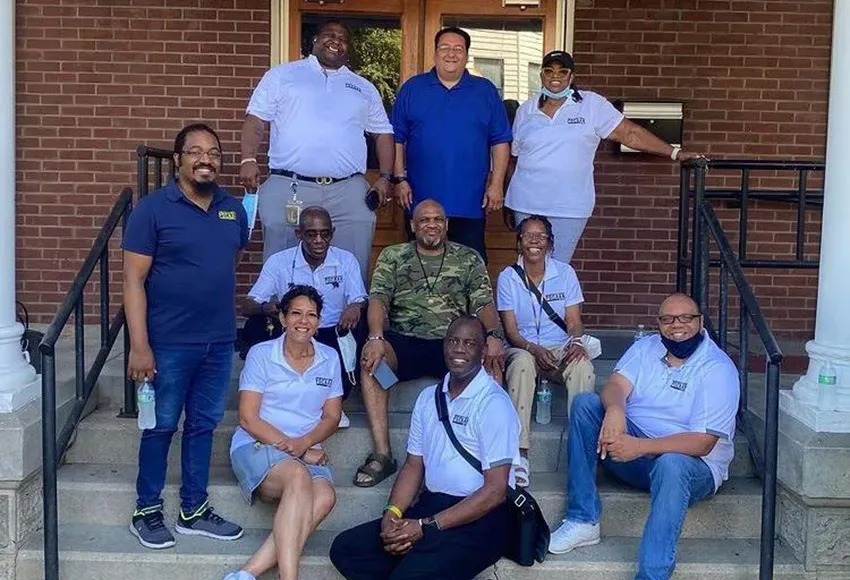The year was 1987. Dirty Dancing hit the theaters, Michael Jackson topped the charts, Baby Jessica fell down a well, and 4,135 people died of the HIV/AIDS virus. This was also the year the People of Color Against AIDS Network (POCAAN), founded as a response to the lack of information and resources in King County, first opened its doors in Seattle.
With its work rooted in HIV prevention, POCAAN started a journey fueled by love, extending its hand to those most affected by the epidemic: LGBTQIA+ people, impoverished people, and people of color. For the last 29 years, POCAAN has served some of King County's most vulnerable communities, providing healthcare and disease testing.
A year into its existence, it launched the "Famous Last Words" campaign, a dark wake-up call for many who did not understand the dangers of unprotected sex.
Karen Hartfield, one of POCAAN's founding board members, spoke about the success of the first ad campaign. "We had TV PSAs, we had billboards all over the place... One of our earliest campaigns' tagline was 'AIDS is a white man's disease – famous last words.'"

Expanding its outreach
The next step in its community education and outreach was to provide information about safe sex to Seattle's homeless population. In 1989 POCAAN received renewed grant money, allowing it to connect with homeless youth, who were predominantly LGBTQ+, and conduct more research on the ways HIV was spreading throughout King County.
The organization soon realized that HIV was not strictly a "Gay disease" and that people in heterosexual relationships who did not identify as LGBTQ+ were still contracting it. Social research found that this spike was coming from "men who were living in heterosexual relationships and marriages but were having sex with other men on the side."
POCAAN then again expanded its outreach to other communities. "There were women in the sex industry, and then the other population was homeless or street youth," Hartfield said. "They were at risk because they were maybe trading sex for a place to stay or maybe looking for affection from an adult because they had been kicked out of their homes and that sort of thing.
"Also, we focused on Gay men who used methamphetamine, which continues to be the highest-risk population for HIV, even now, and that was a population that was much more underground and harder to reach. Then we also focused on Gay men who identified as Gay but also continued to have risky behavior."
After that, POCAAN realized it needed to focus on racially marginalized communities often excluded from LGBTQ+ circles, which tended to be very white. While white Queer people were starting to understand the dangers of the disease, Seattle's Black, Latinx, and Indigenous communities were seeing HIV spikes.
"I was mostly working with the African American community at the time, and there was no perception that it could impact the community at all," Hartfield said. "In the eyes of the community, it was a Gay problem. Especially then, a lot of African American Gay men weren't out to their families, so it was like, this is a white problem, too. Overcoming all of those problems was challenging."
Overcoming stigma
Ads such as "Girlfriends Talking" helped normalize homosexuality in racially marginalized communities and spread awareness that HIV was not a strictly Gay or white disease. Still, POCAAN continued to face the challenge of the overlapping stigma that came with being Gay and HIV positive in the early '90s.
As Robert Wood, another early member of POCAAN's team remembers, "It was hard for people to be openly Gay and accepted within their community. If we could get minority communities more accepting of homosexuality, it would do a lot to decrease the transmission of HIV in those populations. That's a need that continues. The stigma of homosexuality is more damaging than the stigma of HIV."
Addressing related issues
Originally an organization meant to serve Seattle's HIV-positive community, the brilliant people behind POCAAN soon realized that HIV has significant correlations to related issues, such as substance abuse, incarceration, homelessness, sexually transmitted diseases, racism, sexism, and homophobia. Today, the organization works to combat all of these issues, and its programs are geared toward education, outreach, HIV prevention and awareness, criminal justice, and health advocacy
POCAAN's strength lies in its ability to provide services that are culturally competent to diverse populations. This is possible because of nearly all-BIPOC leadership boards and program directors.
Today, its work includes a mobile HIV testing station, which provides 99.8% accuracy within 60 seconds; the Trans Economic Project, which seeks to empower and assess the needs of the Black Trans community; and the Best Start for Kids Youth and Family Homeless Prevention Initiative, which addresses the disproportionate number of LGBTQ+ youth facing homelessness, among many more.
If you're looking to support an organization with a rich history in Seattle and a drive to help all marginalized communities in King County, consider donating to POCAAN this holiday season.
Find POCAAN online at http://pocaan.org/


